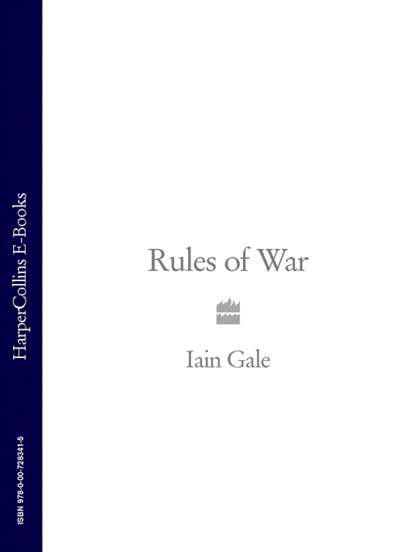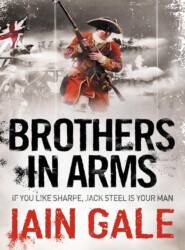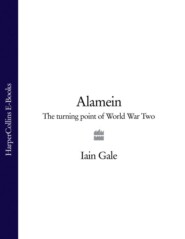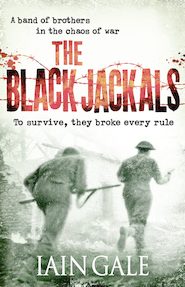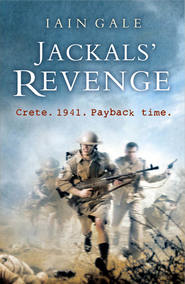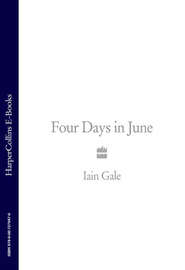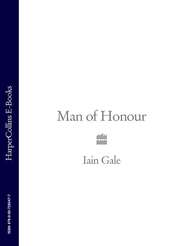По всем вопросам обращайтесь на: info@litportal.ru
(©) 2003-2024.
✖
Rules of War
Автор
Год написания книги
2018
Настройки чтения
Размер шрифта
Высота строк
Поля
Steel hissed at Slaughter: ‘By God, Jacob. I wouldn’t like to be one of Clare’s men. You know Argyll believes them to be the devil’s soldiers.’
He saw the duke wielding a Highland broadsword almost as heavy as his own. His face was frozen in a rictus of fury and he was chopping his way through a forest of Irishmen, severing limbs and heads as he went.
Argyll caught sight of Steel: ‘Steel, by God. What luck this? A whole regiment of heathens. Papists. Heretics!’ Possessed by his fervour, he ran headlong into a group of three Irish dragoons spitting one on his sword and punching another full in the face with his gloved fist before slitting his throat.
Steel looked at Slaughter and knew what was required. Both men ran to help Argyll who was now locked in a duel with the remaining dragoon and had not seen a fourth come round behind him. Steel fell upon the man and with a savage uppercut of his blade, sliced the back of his head. To his left four more dragoons appeared, intent apparently on saving their comrade engaged with Argyll. Steel could see now that the man was an officer and then recognized him as O’Brien himself. He had been a noted swordsman when they had fought under the same colours and Steel could see that he had not lost his touch. Every blow that Argyll aimed towards him, O’Brien met with an expert parry. As the dragoons hurried to rescue their commander, Steel and Slaughter turned to face them and he noticed that they had been joined by a half-dozen of the Grenadiers.
Slaughter hissed at them. ‘You took your bloody time. Corporal Taylor, Mulligan, you others there, with me. The rest of you, with Captain Steel.’
Steel squared up to one of the dragoons and feinting to the left with a blow of his sword dealt him a tremendous kick in the groin which felled him to the ground. As each Grenadier found a man in turn, Steel noticed that Argyll had been joined by more of his own men, including one of his sergeants, a huge, barrel-chested brute armed with what looked like a captured cavalry sabre. He and the duke were fighting O’Brien together now yet still it seemed as if the Irishman was more than capable of beating them off. Steel cut to the right to parry a thrust from a dragoon’s bayonet and on the return stroke pierced the man through the stomach. Slaughter had dispatched another of the enemy and for an instant the two men stood uncertain of who to take on next. At that moment a clatter of hooves on cobbles announced the arrival of a party of redcoated English dragoons.
At their head rode a young cornet of horse wearing a broad grin. He was shouting like an excited schoolboy. ‘The field is ours. The field is ours. The French are retreating, the day is ours, my boys.’
A single shot broke against the noise of steel on steel as Slaughter, who had unslung his fusil from his back, fired into the air. With the cornet’s words, it was enough. Grenadiers and Irishmen alike broke apart in their individual combats and stood at the en-garde, uncertain of what to do.
O’Brien disengaged from Argyll who, along with the big redcoat sergeant slowly backed away. Taking care still not to quite drop his guard, the Irishman gently raised the tip of his sword until it was pointing skywards and as the general stood motionless, his own blade still held out before him, the young Jacobite reversed his hand so that the blade now pointed directly towards the ground. Argyll watched for a moment and then, as Steel looked on, gave a barely perceptible nod towards the sergeant who, with a great lunge of the sort one might execute in a fencing salle, sprang towards O’Brien and buried his blade deep in his heart. The Irishman’s soft, green eyes expressed his utter surprise, then as they glazed over, he dropped his sword, grasped at the blade in his chest and fell to the ground. Steel was lost for words. The sergeant straightened up, withdrew the long blade and turned to Argyll.
‘Good work, McKellar. That’s a sovereign for you.’ He turned to address his regiment: ‘Each one of you men shall have a sovereign for every Papist officer slain today.’
The sergeant saluted his commander with his bloody blade and walked away to discuss the good news with the men and tally their scores.
Steel turned on Argyll: ‘You murdered him. Your Grace, Clare was surrendering. He was offering you his sword.’
‘That man was a Papist and a traitor and he suffered for it. I told you, Steel. I fight not only for my queen and my country. I fight for a greater Britain, for a nation free from such perverse unbelievers. I fight for truth, Steel. For truth. For freedom and against superstition. If you would care to discuss the matter further, I await your pleasure.’
Turning, Argyll walked away from Steel and the others, pausing only to clean his sword blade on the white coat of a dead French soldier.
Steel watched him go in silence and looked down at the body of the Irishman. Around him the Grenadiers were taking the surrender of Clare’s dragoons and he realized that the cannon seemed to have stopped firing. From beyond the town came the rolling noise of musketry and a confused cacophony which he recognized as the sound of one army in full flight and another in pursuit. It seemed that the cornet had been right. The battle was won. He shook his head, and said to no one in particular, ‘If that’s freedom and truth, then I want no part of it.’
He thought of his younger brother, Alexander, a Jacobite who had left the family five years back. His whereabouts were currently unknown although Steel presumed that his allegiance, like that of poor, dead Clare, lay still with the old king and the old monarchy. He thought how easily it might have been Alexander rather than O’Brien who had met his end on the sergeant’s blade. He shivered and realized that one day he might meet him himself on a field of battle. He prayed that it would not be and called down a silent blessing on his brother, wherever he now was. Was it too much to hope that perhaps one day they would be reunited in a Scotland where all might be treated equally and where principle and religious bigotry did not divide families?
Slaughter was at his side. ‘You’re right there, sir. Though I know there’s some among our own lads that’d agree with the duke.’
‘I dare say there are. We’re all fighting for different things, Jacob; praying to different gods. But from what I can see, sometimes there’s no difference between Argyll’s idea of a new world and the blind bloody hatred I thought we might have left behind when Her Majesty came to the throne.’ He looked across to where the body of van Cutzem lay, among those of his men, face down in the bloody dirt. ‘I met a man on this field today who believed that war could be civilized with artificial rules and politeness. I told him that he was wrong and now he’s dead. And he was wrong, Jacob. The only way that we’re going to make a world worth living in, apart from kicking fat King Louis off his throne, is to start realizing that all war is brutal and nasty. It’s kill or be killed. The only winner is the man who gets in the first volley. Clare knew that.’ He pointed after Argyll. ‘And that man knows it too. But we shouldn’t hate like he does. That’s not war. We all have principles, our own codes of war. And we’re all after glory, Jacob. All of us, you, me, Mister Hansam, Mister Williams. Glory and honour. Those are the only two things that matter in this life. Those and life itself. But we’re soldiers, we’re paid to take life. So they’re all that we have left. Rob us of them and you make us no better than common murderers.’
Night came. As far as the eye could see around them dead bodies littered the ground. And most of them wore the white coat of France. They shone pale and motionless in the moonlight. Occasionally a heavy groan would reveal some still with a trace of life. But within minutes the scavenging peasants who roamed the battlefield had found the man and all was silent again.
The heat of the day had gradually given way to night and following orders from Lord Orkney, the regiment, with the Grenadiers in the vanguard, had pressed on in the pursuit. Their passage had been marked by a constant drumming – specific instructions from the high command to drive the enemy before them in fear. The noise had begun to irritate Steel, who was chewing on a large cud of tobacco as he rode, in a vain attempt to salve a headache. Tom Williams, his wound dressed and his arm in a sling, had rejoined them and was fired by the victory.
For miles in the wake of the retreating French army the dead and wounded lay along the road. Steel’s men watched impassively as the French cried out for succour. Occasionally a kindly Grenadier would stop to give them some water. But for the most part they chose to ignore the cries. Hadn’t they suffered enough themselves at the hands of the French in Ramillies? They had left too many good men back on that field to admit thoughts of compassion. Not quite yet. Besides, they had been ordered to advance immediately by their commander. Such was the haste of the enemy’s flight that many had left their possessions back on the field and knew that they would not see them again.
The French army being dispersed, many regiments had separated and drifted into leaderless groups. At times, as Steel’s men advanced through the darkness they would see isolated figures running ahead of them on the road, who at the sound of their approach would dart away into the open country. The French were everywhere, and yet nowhere. They were merely individual fugitives and deserters from an army that had effectively ceased to exist. The pursuit was bloody and relentless and if the British did not quite wear the countenances of murderers, then neither were they all gentlemen.
Hansam rode up to join Steel: ‘It was a great victory, Jack. You may be certain that the bells will be rung in London and Lord Marlborough’s health drunk throughout the land.’
Steel said nothing.
They had halted for a moment in their hurried march towards the west on a rise in the ground above the village of Meldert, near on fifteen miles from the battlefield. Now the day was breaking about them. But this morning the dawn mingled with another glow which the company watched with interest and curiosity. It came from the northwest from the direction of the town of Louvain, a key crossing-place on the defence line of the River Dyle, which lay some seven miles off. While most of the men were puzzled at its source, offering a variety of opinions, Steel was in no doubt. He had seen similar sights too many times before.
Hansam too saw the glow: ‘Fires, Jack? Have the French reformed, d’you think?’
Williams was standing beside them now: ‘What d’you suppose it is, sir? Another battle? Have our cavalry caught up with the French rearguard?’
Steel shook his head. ‘No, Tom. The French haven’t the stomach for another fight just yet. And our cavalry as I hear, are too far to the south. No, that is the sign of an army that has given up the fight. The French are burning their supplies lest they should fall into our hands. That’s the funeral pyre of Villeroi’s army.’
Slaughter and two of the men, Mackay and Cussiter were standing watching the glow as they shared a piece of dried sausage one of them had found in a Frenchman’s haversack. Cussiter spoke as he chewed: ‘Did you see them surrendering? They just laid down their arms like so many fat poltroons and gave themselves up to us. Call themselves soldiers, indeed.’
Mackay nodded: ‘Did you see ’em, Sarge? I couldn’t see nothing but the seats of their breeches.’
Slaughter shook his head: ‘You’d best make what you can of it for now. You can be sure you’ll see more of them just as soon as King Louis can send them back. The French ain’t finished yet.’
Cussiter spat into the fire: ‘It was the cavalry that decided it, weren’t it, Sarge. Never seen such horses. Crashed into the French like a blade goin’ through the corn.’ He gesticulated with his hand, as if to sever Mackay’s head.
Mackay backed away and laughed: ‘Cavalry or whoever it might ’a been, it was the general as won that battle an’ that’s the truth. It was Marlborough. Our own good Corporal John.’
Now Slaughter spat at the fire, making it hiss as the fatty gristle hit the flames. ‘’Tweren’t cavalry. ’Tweren’t even Marlborough, though he’s as good a general as ever I served under. What won that battle was the men. Plain and simple, lads.’ Twere you and me won that battle and don’t you ever bloody forget it.’
* * *
Steel, dismounted now, wandered among the men, nodding greetings to those he recognized in the gloom. He scratched at the filthy rag wrapped around his neck and dreamed of a bath. At least as the victors there were such pleasures to look forward to. They would advance, he presumed, to Brussels. It seemed the clear objective. Where after that though, he wondered?
He found Slaughter standing on his own, staring into the embers. ‘So, Jacob, tell me where you think we’re bound after this great day?’
‘Well, sir. If I were the great duke his self, I would want to catch the rest of the Frenchies. So I would make for Brussels and by that cut them off.’
‘By God Jacob, we’ll make a general of you yet.’ He saw Williams: ‘D’you hear that Tom? General His Grace the Duke of Slaughter here would have us march on Brussels and catch the enemy running for home.’
Williams laughed. ‘That would be a fine thing, sir.’
Slaughter grinned: ‘Thank you indeed, sir. But I think I’ll stick to being a sergeant and let His Grace make the decisions.
‘Nevertheless, I think you may be right, Sarn’t. But I also believe that Marlborough intends us to push the French from the Netherlands once and for all and to do that he will have to take the remaining forts. Everything from Malines and Ghent to Bruges, Oudenarde and Antwerp. They will be our next objectives.’
‘Not more ’sieging, sir?’
‘I believe so. And I know how you enjoy it, Jacob.’
Slaughter spat into the flames. The Grenadiers that could hear him laughed. Brave as he was in battle, the sergeant was known for his enjoyment of home comforts and in particular, on the right occasion and with due propriety, of pretty women. And if there was one thing he was unlikely to find in the siege lines around a fortress it was a willing harlot. And then there was the question of his extreme dislike of enclosed, dark spaces, and there were always enough of those in a siege. It was the reason he had joined up in the first place, to be away from what life he might have had in the new coal mines around his native Durham. Slaughter cursed and spat again.
Steel, gazing into the fire, could not help but recall the words of Colonel Hawkins in Ramillies: ‘I shall have need of you ere long.’ But how long, he wondered, would that be?
Had he only known it he could have had that answer quicker than he thought. For barely four hours later, less than half a mile away from Steel, close to the village of Meldert, a man was waking up with a mind filled with such thoughts. Having spent the night wrapped in his cloak by the roadside, James Hawkins was attempting to drink a cup of coffee. Attempting, because his servant, Jagger, had sworn to him that it was real coffee and he did not wish to hurt his feelings. But to Hawkins it smelt more like the swillings of a Flemish alehouse. Still, it was something, more than was to be had by most. Orkney, he knew, had not eaten for a day and perhaps Marlborough too. He had not woken in the brightest of spirits. But with the recollection of how complete their victory had been his aches and tiredness had gone. Now, as he drank, his mind raced with the prospect in hand. They must surely exploit this initiative over the French, but subtly and with no little care. Looking about him through the dawn, he saw a few yards off the distinctive figure of Marlborough, together with a few servants and several of the general staff. Hawkins handed the half-empty cup to Jagger and then, seeing how crestfallen the poor wretch looked, decided to keep the brew and went to join them.
Adam Cardonnel, Marlborough’s personal secretary, was speaking animatedly and waving a piece of paper. ‘Everything is yours, Your Grace. We have taken eighty standards; fifty cannon, tents, baggage, the food still hot together with muskets without number and prisoners by the score. Lord Hay’s dragoons alone have captured two entire battalions of French foot. The Walloons are coming over to us by the hour. We are hard pressed to keep them safe, My Lord. The Danes would have revenge upon them for their treatment in Italy last month.’
From the duke’s left Cadogan spoke up, quietly: ‘By my reckoning, sir, the French have lost near on thirteen thousand men, but some put it at near double that number, if we include the deserters and turncoats.’
Cardonnel spoke again: ‘My Lord, we have even taken their famous negro kettle drummer of the Bavarian Horse Guards. Have I your permission to dispatch the man to the queen in London, sir? He would make her an elegant servant and a true prize.’





